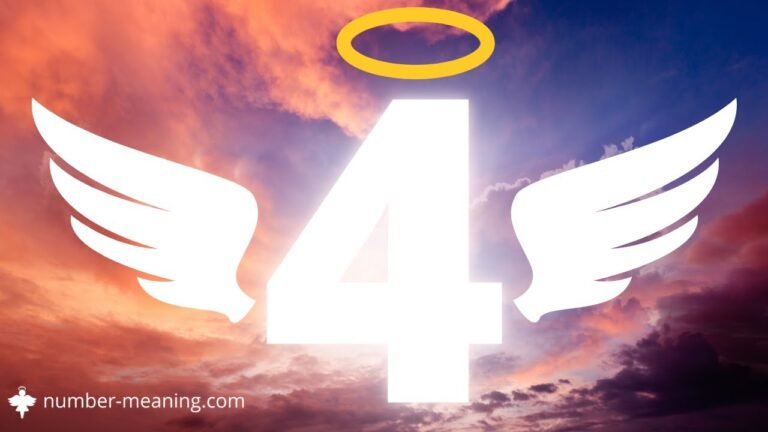Understanding the Meaning of BC
In the realm of historical dating, the abbreviation BC frequently surfaces, prompting many to wonder, what does BC stand for? This concise term, which stands for Before Christ, marks the years leading up to the estimated birth of Jesus Christ, providing a framework for understanding ancient history. As we delve into the significance of this designation, we uncover its pivotal role in shaping our chronological landscape and how it continues to influence both academic discourse and everyday conversations.
What is the meaning of BC in history?
BC stands for Before Christ, indicating years before the estimated birth of Jesus Christ in the Gregorian calendar.
What do the abbreviations BC and AD represent?
BC and AD are terms that have long been used to denote historical timeframes, with BC standing for “before Christ” and AD signifying “Anno Domini,” which translates to “the year of the Lord.” These designations have played a significant role in Western history and chronology, helping to organize events in relation to the birth of Jesus Christ.
In contemporary discussions, however, there’s a shift toward more inclusive terminology. BCE, meaning “before the common era,” and CE, or “common era,” are increasingly favored to avoid religious connotations while still providing a clear chronological framework. This transition reflects a broader effort to embrace a diverse range of perspectives in historical discourse.
What does BC stand for?
BC is an abbreviation for “Before Christ,” a designation used in the Gregorian calendar to indicate years that occurred prior to the estimated birth year of Jesus Christ. This system helps us understand historical timelines, placing events in a context that is familiar to many. For instance, when we say that Caesar was assassinated in 44 B.C., it highlights a significant moment in history, occurring nearly two millennia ago.
The use of BC is essential in the study of history, as it allows for a clear distinction between events that unfolded before and after the birth of Christ. This chronological framework not only aids in organizing historical data but also provides a cultural reference point that resonates across various societies. Understanding this system enriches our grasp of historical narratives and the evolution of civilizations throughout time.
Why is BC referred to as BCE now?
The shift from BC to BCE and from AD to CE reflects a growing emphasis on inclusivity and cultural sensitivity in our globalized world. As the Gregorian calendar has become the international standard for timekeeping, the adoption of BCE (Before Common Era) and CE (Common Era) provides a secular alternative that accommodates diverse religious beliefs. This change allows individuals from various backgrounds to engage with historical timelines without the implications tied to Christian terminology.
By using BCE and CE, we acknowledge the importance of respecting different cultural perspectives, promoting a more universal understanding of history. This approach fosters dialogue among communities and encourages a broader appreciation of our shared past, making it more accessible to people of all faiths and backgrounds. In an increasingly interconnected society, such shifts in language not only reflect changing attitudes but also enhance mutual respect and understanding.
Decoding the Significance of BC in History
The term “BC,” which stands for “Before Christ,” serves as a determinante marker in the timeline of human history, denoting years before the traditional date of the birth of Jesus Christ. This designation allows historians and scholars to organize events chronologically, creating a framework that aids in understanding the progression of civilizations. By placing significant events and developments within the BC timeline, we can better appreciate the cultural, political, and technological advancements that shaped ancient societies.
The significance of BC lies not only in its historical context but also in its impact on contemporary society. The eras marked by this designation saw the rise and fall of empires, the establishment of trade routes, and the formulation of early philosophical thought. These elements laid the foundation for modern governance, science, and ethics. By studying the BC timeline, we can draw valuable lessons from the successes and failures of our ancestors, allowing us to inform our present-day decisions and policies.
Moreover, the BC framework fosters a deeper understanding of cultural heritage and human interconnectedness. As we examine the events of this era, we recognize the shared experiences of humanity, transcending geographical and temporal boundaries. This perspective encourages a sense of unity and continuity, highlighting how the legacies of ancient civilizations continue to influence our lives today. Ultimately, decoding the significance of BC enriches our understanding of history and reinforces the importance of preserving our shared past.
Exploring the Cultural Impact of BC Eras
The cultural landscape of the BC eras was profoundly shaped by the civilizations that flourished during this time. From the artistic expressions of ancient Greece to the architectural marvels of Egypt, these societies laid the groundwork for future cultural developments. Their mythology, philosophy, and innovations in governance influenced not just their contemporaries but also the trajectories of civilizations that followed. The exchange of ideas through trade and conquest further enriched the tapestry of culture, fostering a diverse blend of traditions that resonate even today.
As we explore the legacy of these ancient periods, we uncover a mosaic of human experience that continues to inform modern society. The philosophical inquiries of figures like Socrates and Confucius set the stage for contemporary thought, while the artistic techniques of the Romans and Egyptians inspire countless artists and architects. By examining artifacts, literature, and historical records, we gain insight into the values and beliefs that defined these cultures. This exploration not only highlights the achievements of the past but also invites reflection on how these enduring influences shape our identities and cultural narratives in the present day.
The Role of BC in Shaping Modern Society
Throughout history, the concept of before Christ (BC) has played a pivotal role in shaping modern society by providing a framework for understanding the progression of human civilization. The events and milestones that occurred during this era laid the groundwork for cultural, religious, and scientific developments that continue to influence our world today. From the rise of ancient empires to the birth of philosophical thought, BC marks a period of innovation and exploration that has informed contemporary values, governance, and social structures. By studying this era, we gain insight into the roots of our current identities and the enduring lessons that history imparts, ultimately guiding us toward a more informed and cohesive future.
A Journey Through Time: The BC Perspective
In the vast tapestry of history, British Columbia stands as a testament to the resilience and innovation of its people. From the ancient wisdom of Indigenous cultures to the waves of settlers who arrived seeking opportunity, the province’s narrative is woven with stories of adaptation and growth. The natural beauty of its landscapes, from towering mountains to serene coastlines, has not only shaped the lives of those who inhabit it but also served as a backdrop for key events that have defined its character.
As we traverse the timeline of British Columbia, we uncover the rich layers of its past, each era contributing to the vibrant mosaic of its identity. The Gold Rush of the mid-19th century transformed the region, attracting a diverse influx of individuals and igniting economic development. This period of change fostered a spirit of collaboration and conflict, giving rise to a unique cultural fusion that continues to thrive today. Embracing both its heritage and modernity, British Columbia invites us to reflect on its journey, reminding us that history is not just a record of what was, but a foundation for what lies ahead.
Understanding what BC stands for not only enriches our grasp of historical timelines but also connects us to the cultural and philosophical foundations of our past. By recognizing its significance, we can better appreciate the contexts in which pivotal events unfolded, fostering a deeper connection to humanity’s shared journey through time. Embracing these insights allows us to navigate our present with a more informed perspective, bridging the gap between history and contemporary life.







